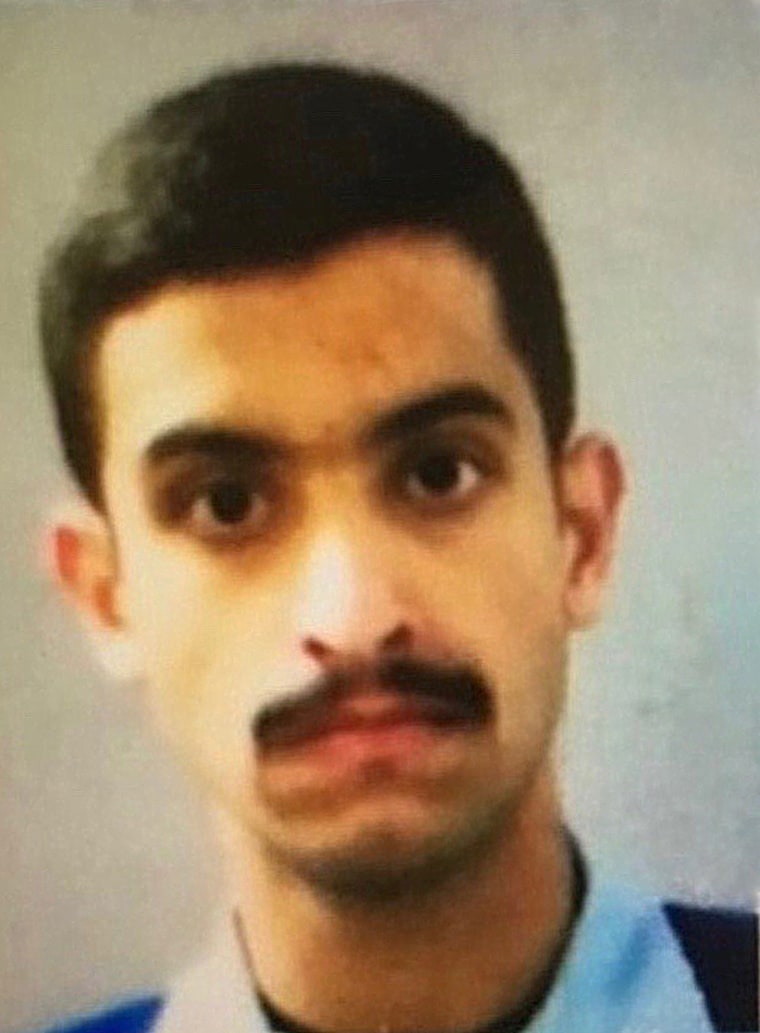Federal authorities said Monday that the Saudi Air Force officer who shot his fellow students at Pensacola Air Station in Florida in December was pushed by the al Qaeda terror group to carry out the attack, a discovery authorities made after examining a cellphone he tried to destroy.
Attorney General William Barr and FBI Director Christopher Wray blasted Apple for refusing to help investigators open the phones, a process that took more than four months. Barr said Apple made a marketing decision to sell a product that cannot be opened by the company even with a court order.
"Our national security cannot remain in the hands of big corporations who put dollars over lawful access and public safety," Barr said.
In response, Apple said it provided the FBI all the data it had, including from iCloud backups. But the company said it opposes any kind of “backdoor” that would allow anyone other than the user to unlock a phone. “We do not believe in the creation of a backdoor — one which will make every device vulnerable to bad actors who threaten our national security and the data security of our customers. There is no such thing as a backdoor just for the good guys, and the American people do not have to choose between weakening encryption and effective investigations.”
Three people were killed and eight others were wounded when Mohammed Alshamrani — a Saudi Air Force officer in the U..S for military training — opened fire in a classroom building on Dec. 6.
FBI agents found two phones belonging to Alshamrani after the attack. They were especially eager to search ones of them that investigators said he put on the floor and shot during his attack in an attempt to destroy any data it held.

Wray said data from the phones showed that Alshamrani was radicalized as early as 2015 and was in frequent contact with operatives for Al Qaeda in the Arabian Peninsula (AQAP), expressing his desire to learn to fly. "And then he pressed his plans forward, joining the air force and bring his plot here to America."
Once in the US, Wray said, Alshamrani continued to communicate with AQAP terrorists about his plans and tactics, "taking advantage of the information he acquired here, to assess how many people he would try to kill."
Alshamrani wrote a final will and saved it in his phone, communicating with the terrorists overseas the night before he carried out his attack, Wray said.
AQAP claimed in an audio recording released in February that it had directed him to carry out the attack. Five days after the recording was posted, the White House announced that the leader of the group, Qassim al-Rimi, had been killed in a US attack in Yemen.
Barr disclosed Monday that information from one of the unlocked Alshamrani phones was useful in leading to a counterterrorism operation in Yemen targeting another AQAP operative, Abdullah al-Maliki. Barr declined to say whether the operation killed him but said "the al-Maliki group has been seriously degraded."
U.S. officials said from the beginning that they considered the attack an act of terrorism. They discovered that last September, Alshamrani posted this message on social media: "the countdown has started." They say he also posted a string of anti-American, anti-Israeli and jihadist messages — the last one just two hours before the attack.
Monday’s comments by the attorney general and the FBI director were the most pointed yet against Apple. The Justice Department went to court four years ago in an effort to force the company to unlock an iPhone left behind by the couple that killed 14 people at a San Bernardino, California government facility.
Barr said if not for the FBI's ingenuity and some luck, the information about Alshamrani would never have been discovered. He said efforts to persuade tech companies to allow for searches of electronic devices when authorized by court order have been unsuccessful. "The time has come for a legislative solution."
